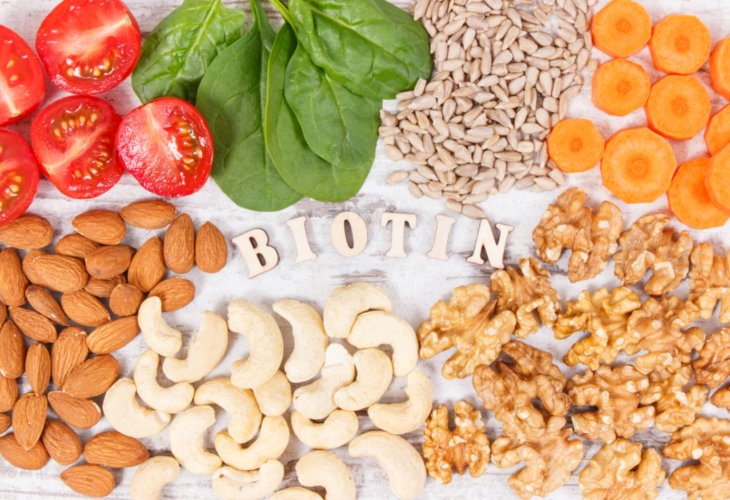Unveiling the Vitamins: B Family Finale and More
In recent discussions, we've explored the family of B vitamins—soluble in water and crucial for many bodily functions. As we conclude this series, let's dive into the final vitamins, with a bonus touch on Vitamin C.
 (Photo: Shutterstock)
(Photo: Shutterstock)In previous articles, we've expanded upon the B vitamins, which are vital for the nervous system, skin health, liver function, and mental well-being. Now, let's delve into the last two vitamins in this series.
Choline
Choline is part of the B-complex family and is a crucial component in producing lecithin, which transports fats from the blood to the liver, acts as a "carrier" of proteins, and is an important part of the nervous system. Choline serves as a building block for the neurotransmitter acetylcholine, improving memory and enhancing cognitive abilities.
People suffering from dementia experience a shortage of the neurotransmitter acetylcholine. In clinical trials with dementia patients, adding acetylcholine showed improvements in cognitive ability.
Choline sources in food: eggs, whole grains, and fish.
Biotin
Known as the "skin vitamin," biotin is particularly important for skin health. It's beneficial for dry skin, sensitivity, pain, and inflammation. Biotin participates in the metabolism of fats, proteins, and carbohydrates. It plays a role in producing the amino acid arginine, essential for fertility, and prevents the overgrowth of Candida bacteria in the intestines.
Biotin sources in food: leafy greens, legumes, and whole grains.
Inositol
Another member of the B vitamin family, inositol is crucial for lecithin production and supports normal liver function. It aids in the metabolism of macronutrients and, according to studies, helps prevent and treat certain types of cancer.
PABA – PABA
Considered part of the B-complex family, this acid is vital for the absorption of folic acid. It protects the skin from sun's ultraviolet rays, is important for hair health and maintaining its color, and aids in protein digestion.
Sources in food: leafy greens, nuts, spinach, and whole grains.
A deficiency in PABA can lead to anemia, with the hair turning gray or white, and may cause depigmented areas on the skin.
Vitamin C
Vitamin C is involved in about 300 biological processes in the human body. It is crucial for strengthening the immune system, reducing the frequency of infections and inflammations, preventing heart disease, essential for wound healing, converting cholesterol into bile and aiding in adrenal glands to produce adrenaline. It also helps the body absorb iron and alleviates allergy symptoms. It's a natural "antihistamine".
Sources in food: kiwi, lettuce, cherries, broccoli, tomato, and orange.
Deficiency symptoms include bruising, a weakened immune system, and gum inflammation. A significant deficiency in Vitamin C can lead to scurvy, characterized by fatigue, pain, subcutaneous bleeding, and depression.
To arrange in-home sessions with Rabbanit R. Bazri (free of charge), call 073-2221240

